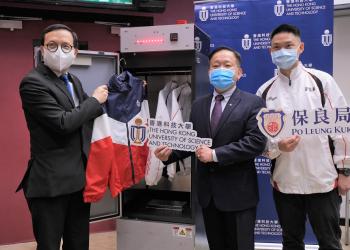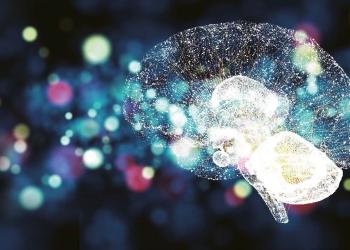News & Stories
2021
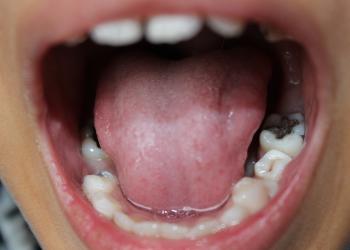
News
HKUST Researchers Unlock the Micro-Molecular Physiochemical Mechanism of Dental Plaque Formation
An inter-disciplinary team of researchers led by Prof. Qian Peiyuan, Chair Professor at the Hong Kong University of Science and Technology (HKUST)’s Department of Ocean Science and Division of Life Science has unraveled how a novel microbial small molecule released by Streptococcus mutans (S. mutans) – a bacterium commonly found in the human oral cavity – is connected to dental caries development using a synthetic biology approach, offering new insights to the health impact of the human oral microbiota and facilitating future research on the prevention of tooth decay. The research findings were recently published in the prestigious scientific journal Nature Chemical Biology and reported by Nature as one of the research highlights.
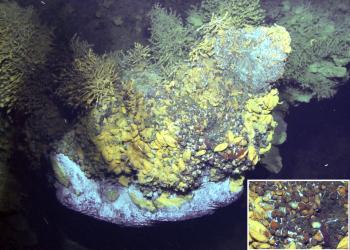
News
HKUST decodes a deep-sea vent-endemic snail hologenome and unveils its living strategies in the extreme environment
A research team led by Prof. QIAN Peiyuan, Head and Chair Professor from the Hong Kong University of Science and Technology (HKUST)’s Department of Ocean Science and David von Hansemann Professor of Science, has published their cutting-edge findings of symbiotic mechanisms of a deep-sea vent snail (Gigantopelta aegis) in the scientific journal Nature Communications. They discovered that Gigantopelta snail houses both sulfur-oxidizing bacteria and methane-oxidizing bacteria inside its esophageal gland cells (part of digestive system) as endosymbionts. By decoding the genomes of both snail host and two symbionts, Prof. Qian’s team disclosed a novel dual symbiosis system and the molecular adaptation to the extreme environment, gaining a new understanding of the origin of life on Earth.

News
Humanizing Yeast ORC Sheds Light on Cancer Therapy and Human Development
Researchers from the Hong Kong University of Science and Technology (HKSUST) and the University of Hong Kong (HKU) recently demonstrated that the selectivity determinant of Origin Recognition Complex (ORC) for DNA binding lies in a 19-amino acid insertion helix in the Orc4 subunit, which is present in yeast but absent in human. Removal of this motif from Orc4 transforms the yeast ORC, which selects origins based on base-specific binding at defined locations, into one whose selectivity is dictated by chromatin landscape (genomic nucleosome profile), a characteristic feature shared by human ORC.
Further understanding of the preferred DNA shapes and nucleosome positioning requirements will provide new insights for the plasticity of the human ORC in selecting replication initiation sites during programmed development and disease transformation, and also help identify potential targets for anti-cancer drug screening and therapy design.
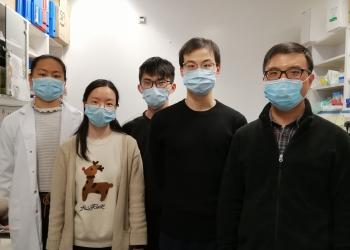
News
HKUST Researchers Discover a Novel Mechanism of Recruiting Arf Family Proteins to Specific Subcellular Localizations
Researchers of the Hong Kong University of Science and Technology (HKUST) recently uncovered a novel molecular mechanism that regulates the subcellular localizations of Arf proteins, shedding light on the mechanism underlying various inherited diseases and offering new insight to the treatment of them.
2020
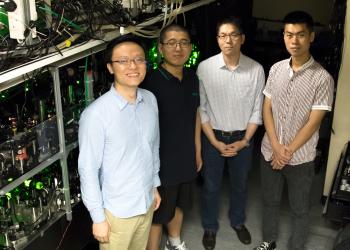
News
Physicists Quantum Simulate a System in which Fermions with Multiple Flavors Behave Like Bosons
Quantum simulations show that boson-like behaviours, so-called bosonization, emerge from an ensemble of fermions in three-dimensional systems, despite that bosons and fermions are governed by distinct quantum statistics.
In the text book of quantum mechanics, it was introduced that bosons and fermions, two types of elementary particles that build the universe, behave in a drastically different way. For example, bosons can share the same quantum state while fermions of the same kind cannot but fill available quantum states one by one.







